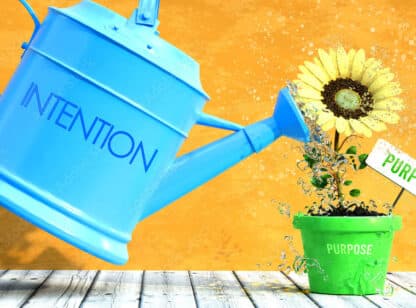Did you know that 70% of the family members caring for a loved one with Alzheimer’s or other dementia will develop a chronic, life-altering condition or succumb before their loved one?
This is a fact from the National Alzheimer’s Association. I know first-hand how daunting the role of family caregiver/partner is as my father, and too many others I have known in this role, are included in that shocking statistic.
Your ability to cope with and survive the all-consuming role of caregiver/partner for a loved one with Alzheimer’s or related dementia depends on many things. Here are proven steps for thriving in this role.
Discover
LEARN everything you can about the disease your loved one is suspected of having or doctors have diagnosed. Draw upon the knowledge and experience of the professionals in the world of dementia and Alzheimer’s. Read their books, blogs and websites; attend lectures and workshops.
LINK with other family caregivers through support groups. No one will “get it” or support you like they will; nothing you ever say will shock or surprise them. Support groups will become your most valued lifeline. The facilitator sets the tone for the group and each has their own personality and style–so feel free to “shop” around. A strong group will keep you accountable to yourself and that’s just what you need to ultimately thrive in this ordeal.
Survive
LISTEN to your body; it never lies. There is already one victim of this disease; don’t let there be two. You must put yourself first–yes, first–and for many reasons: Who will care for your loved one if you become ill or die from the stress? You deserve to thrive, not just survive. Taking care of your physical, mental, emotional and spiritual self is not ignoring or depriving your loved one. It is just the opposite–you will be even stronger. And nothing is more important than that.
LOVE, PATIENCE AND TOLERANCE will be redefined by this disease. You will have to forget your assumptions and always be bigger than the situation. As the caregiver/partner, you may experience anger, resentment, loneliness, emotional exhaustion, and general fatigue. However, your loved one won’t understand any of your issues. Your relationship must be redefined in order to survive this long, heart-wrenching ordeal.
Thrive
LAUGH together at the funny, sometimes crazy, things that happen as a result of your loved one’s skipping memory. Just don’t make fun of them–that’s of no value to anyone.
LIVE in the present and boldly embrace it. There are no good diseases, yet there are many years ahead for you and your loved one to enjoy. These are progressive diseases, so starting now–take full advantage of the mental and physical abilities your loved one has and go forth. It is certain that you will both benefit and you will draw on those memories down the road.
Kae Hammond is founder and president of Dementia Help Center; author of Pathways: A Guidebook for Dementia & Alzheimer’s Family Caregivers and host of “Care for the Family Caregiver” on 95.9FM KJJZ every Sunday at 7AM. For more information visit wwwdementiahelpcenter.com or call (877) 699.3456.















































Comments (0)